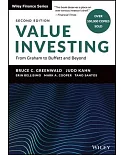Friedrich von Hayek believed humans lived in small groups for millions of years, and in doing so they developed certain behaviors that became genetically fixed and guided individual behavior
that supported cohesion and loyalty as the group cooperated in the search for food and protected each other from danger. According to Hayek today’s civilization reflects groups that gradually
developed other modes of behavior that created learned rules, and those rules developed power over the environment and the ability to relate to people in more than one’s own group, resulting in
barter and trade along with governance. These seven articles reexamine these theories and the controversies they raised and cover such topics as Hayek’s critics, his theory of the mind, the
evolution of legal rules and designed institution, Hayek’s take on entrepreneurship and the market process, Hayek’s concept of free money movement and the evolution of monetary order, and the
role of money and reciprocity in the extended order. Annotation ©2006 Book News, Inc., Portland, OR (booknews.com)





















